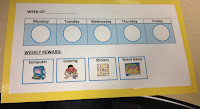Oppositional Defiant Behavior in Children on the Autism Spectrum

"My 8 y.o. has been diagnosed with autism (high functioning) recently, and before that was diagnosed with ODD. When we have behavior problems with him, it's hard to know if the particular 'misbehavior' is driven by autism or by ODD. How do we tell the difference, and how do we approach the multitude of behavior issues we are having with him?" It may be tough at times to recognize the difference between a strong-willed or emotional autistic youngster and one with oppositional defiant behavior. Clearly, there's a range between the usual independence-seeking behavior of kids and defiant behavior. It's normal to exhibit oppositional behaviors at certain stages of development. However, your youngster's issue may be more serious if his behaviors: Are clearly disruptive to the family and home or school environment Are persistent Have lasted at least six months The following are behaviors associated with oppositional defiance: Academic problems



